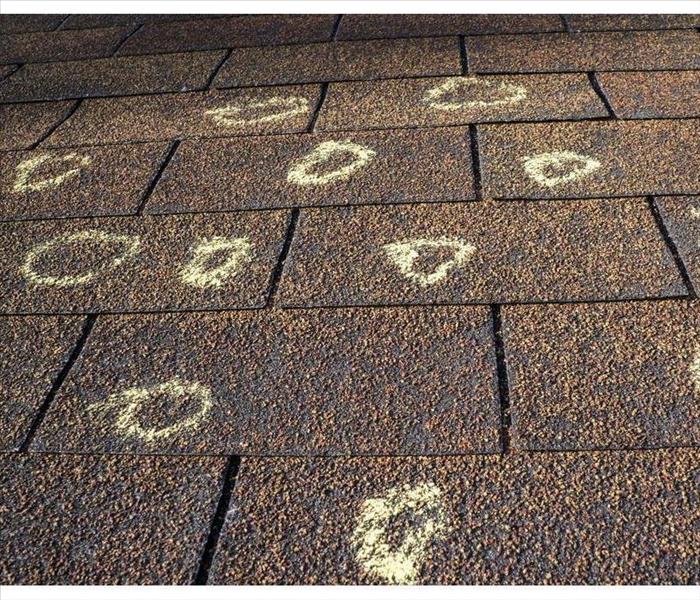3 Ways Hail Can Cause Damage to Your Commercial Building’s Roof
8/10/2021 (Permalink)
Three Ways Hail Can Damage Your Commercial Building's Roof
Hailstorms that move through Buckingham, PA, can wreak havoc on your commercial building. One of the most common results of hail is roof damage, which might contribute to other issues like leaks and water stains on ceilings and walls. There are several ways hail can impact your building’s roof and being aware of them might help you better assess the damage the next time a storm occurs.
1. Cracked or Broken Shingles
One common result of hail damage is cracked and broken shingles. This can be especially common when the hailstones are large. Cracked shingles may allow water to seep in between the flashing or the tar paper and the roof, which may weaken those areas. Broken shingles may peel away completely and leave sections of the roof vulnerable to wind and rain. A commercial restoration service can repair and replace shingles to restore your roof’s integrity.
2. Water-Damaged Insulation
When roof damage occurs as the result of a hailstorm, melted hailstones can seep in under cracked tiles and reach insulation in your building’s attic. Over time, the insulation may weaken or begin to rot, depending on the amount of exposure. This can cause unpleasant musty odors and drafts as the insulation begins to fail. If your area experiences frequent hailstorms, you may want to have your insulation checked several times a year.
3. Increased HVAC Leaks
Large hailstones can damage your roof’s HVAC system and increase leaks each time you run it. Hail can bend or dent fan blades and impact the system’s condenser coils. An HVAC system that leaks may eventually weaken the roof surrounding it and cause water damage around the building’s interior vents. A noisy unit may clue you in to hail damage, especially if you notice new sounds after a storm.
Buckingham, PA, hailstorms can cause considerable roof damage and disrupt your business. Being aware of potential issues caused by these storms can help you be better prepared to deal with them if they should arise.





 24/7 Emergency Service
24/7 Emergency Service
